History Matters!
Here, some of our PhD graduates share their experiences in the department, and how these experiences shaped their lives and careers after graduation!
-
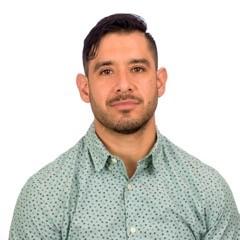
Associate Professor of History, Arizona State University
In addition to the invigorating intellectual exchange, material resources and research opportunities, the Department of History at the University of Southern California provided an additional factor that has shaped my career: brilliant, generous mentors selflessly dedicated to the training of historians. Drs. María Elena Martínez and Marjorie Becker led me through the rich histories of colonial and modern Latin America, respectively. Through their democratic mentorship, they treated me as a future colleague, seriously engaging my ideas and scholarship while motivating me to critically refine them. In essence, they taught me to “fail better,” to continuously think and rethink; to analyze and reanalyze; to write and rewrite. Dr. Becker, in particular, organized numerous directed-study courses with me—the sort of unremunerated labor that demonstrated her commitment to my training and intellectual growth. Dr. George Sánchez taught my graduate student comrades and me the value of solidarity and mutual aid within an Academy not immune from the structures of oppression and power that exist in the world beyond the “ivory tower.”
The program at USC provided the foundation for my professional life. My mentors at USC provided me with an inspirational model of scholar-historian-teacher that I try to replicate as an Associate Professor of History at Arizona State University.
-
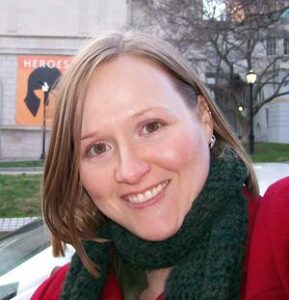
Assistant Professor of History & Government, Misericordia University
When reflecting on my time at USC, I believe that the strongest benefits I gained—aside from the academic training as a researcher and writer, of course—came from informal channels: namely, mentorship and extracurricular engagement in the intellectual community fostered by the department. It’s hard to adequately describe the diverse mentorship I received. As a student in the classroom, the faculty pushed me to consider new bodies of evidence, to argue my position on visual culture more clearly, and to always be prepared to answer the “so what” question. Importantly, I learned to consider and articulate the agency of images in the past—not as illustrations of historical events or processes, but as objects that precipitated change. As a TA, I observed dedicated and thoughtful teachers at work. Yet I also benefited from a myriad of ad-hoc conversations with faculty. On these occasions, the faculty listened to my intellectual queries and ideas and offered advice on research and writing projects. They encouraged and redirected my work in productive and interesting ways, and while some leads never panned out, others continue to fuel my research today. Most importantly, my dissertation committee (Karen Halttunen, Vanessa Schwartz, Richard Fox) urged me to consider the intersections of commerce, the law, and visual culture in ways that fundamentally changed my approach to the past. This committee pushed me to work harder, instilling in me a drive that has benefited my professional career by encouraging me to consider opportunities that I might not have otherwise had.
Moreover, the scholarly culture of the department provided consistent opportunities for intellectual stimulation. A series of writing workshops on grant writing, finishing chapters, job applications, and publishing lent the formative skills necessary to succeed in a variety of authorial tasks. Attending job talks hosted by the department helped me develop my own skills for the academic job market. As I developed my dissertation research, I found inspiration attending guest lectures, panel discussions, brown-bag discussions, receptions, and related events hosted by the department and the Visual Studies Research Institute. In fact, the department’s institutional affiliations and informal connections with the Huntington Library and Getty Research Institute provided bridges that triggered important research paths in my dissertation project. Finally, an unanticipated benefit of attending such events on and off campus was the time management skills I developed, which have served me well in balancing the demands of service, scholarship, and teaching at a small liberal arts institution. From all these experiences at USC, I learned how to be a professional, how to mentor students, and how to network and communicate effectively with colleagues. I’m grateful for these fragmented yet highly-beneficial lessons, which have shaped the professional I’ve become and will strive to be in the future.
-
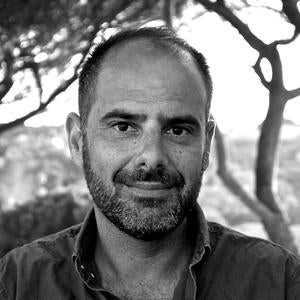
Writer
I came to USC after completing an MA in French Studies at NYU so that I could work with Vanessa Schwartz. With encouragement and financial support from the History department and the Visual Studies Graduate Certificate program I was able to hit the ground running as a researcher as early as my first summer, completing the first of what would become several trips to European archives. Alongside Vanessa, Elinor Accampo, Daniela Bleichmar, Phil Ethington, Karen Halttunen, Deborah Harkness, Paul Lerner, and Steve Ross also provided excellent mentorship, and I continue to treasure the relationships I have with them and with so many peers who studied alongside me. Though I was consistently challenged and pushed out of my comfort zone I never felt pigeonholed during this crucial time of development, and was free to pursue my various interests so long as I could make a rigorous case for doing so.
My post-USC career, as a postdoctoral research fellow working in digital humanities and as a lecturer in Art History, French, and History, both at Stanford, and now writing nonfiction, attest to the broad set of skills honed during my graduate studies. The VSGC CV and Grant Writing workshop is one example of the kind of hands-on training I received, and I was delighted to be invited back to campus to serve as one of the mentors for this year’s workshop. But for all of the many benefits of my time in the classroom, both as student and as TA, and in the archives, the most formative of my experiences at USC were the conversations with fellow graduate students: in coffee shops, at informal dinners, and (this being LA) on countless car rides, always headed toward some new point of discovery.
-
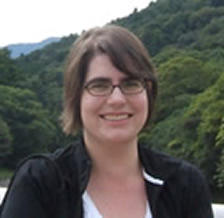
Assistant Professor of Religion, Florida State University
After a year as a visiting professor at the University of Missouri’s Religious Studies program, Dr. Kristina Buhrman joined the Department of Religion at Florida State University, where she teaches courses on Buddhism, religion in Japan, the samurai and ethics, folk religion and culture, along with premodern languages. Her research is on of the history of knowledge in classical and medieval Japan; particularly that involving Onmyodo (a loosely-defined system of divination and propitiatory rituals that drew from Confucian, Daoist, and Buddhist traditions), as well as related fields such as astronomy and astrology. She has published articles on various subjects including historical memory and disaster, the history of science in pre-1600 Japan, and astrology during the mid-Heian Period.
-
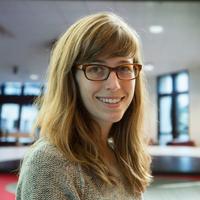
Associate Professor of French Studies, Global Studies and Languages, MIT 2017-Present
2017-2018 Member of the School of Historical Studies at the Institute for Advanced Study, Princeton
I came to USC to study with Vanessa Schwartz after having spent two years studying and working in France. Vanessa was and continues to be an excellent mentor – equal parts supportive and challenging. I also gained a mentor in Elinor Accampo who really taught me about the craft of historical writing. Like many graduate students I learned a tremendous amount from other faculty and students in the seminars I took, but what stands out for me from my time at USC is all the other ways in which I was learning to be an intellectual and a professional. Faculty stopped in the halls to ask about my work. Others arranged for me to have coffee or lunch with other scholars in town for a talk. I was a member of a faculty search committee. I felt like I was taken seriously as a colleague. And, the department and university gave me the money I needed to do research abroad and write my dissertation.
The Visual Studies Graduate Certificate program, now part of the Visual Studies Research Institute, was also a terrific resource. The yearly VSGC CV and grant proposal workshop helped me craft a grant-winning proposal. It turns out those skills crossed over well to the job market. I made friends with students from Art History, Critical Studies, and Comparative Literature, people who still read my work and let me sleep on their couches. I also had the opportunity to take a graduate seminar at the Getty Research Institute during my first year, which eventually led to my first research publication. The questions I pursued in that essay continue to shape my research agenda today.
Living so close to the mountains and the ocean under the California sun wasn’t so bad either!
-
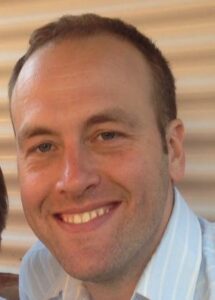
Assistant Professor of History, Nanyang Technological University
A native Angeleno, I started the History Ph.D. program at USC in 2008 and graduated in 2014. Having studied philosophy and worked for a few years as a journalist, I entered the program with a sincere interest in the past but with only the vaguest idea of what being a professional historian was. Fortunately, at USC I was able to emulate some of the most inspiring models the profession has to offer: Peter Mancall, Deborah Harkness, Steve Ross, Philip Ethington, Richard Fox, and most of all, my advisor Karen Halttunen. I now look back and realize how fortunate I was to study under a faculty that offered both breadth and continuity, with who scholars who helped me pursue my interests in American cultural history within a broader intellectual framework that included early modern Europe and intellectual history. No less important, I was given the funding and professionalization guidance necessary to finish in a timely fashion and enter a challenging job market with confidence. Now, as an Assistant Professor of History at Nanyang Technological University in Singapore, I look back at my six years at USC as the most intellectually satisfying of my life.
-
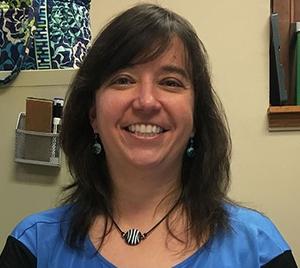
Assistant Professor of History, Monmouth College
One of the things that stands out for me the most at USC was how willing my faculty mentors were to let me use interdisciplinary methods in my research. I came to USC after having completed an MA in maritime archaeology and nautical history, and Prof. Joan Piggott encouraged me to use the methodologies I learned there, allowing me to incorporate a focus on material culture and geospatial analysis into my PhD research. She also pushed me to add an understanding of kambun to my research arsenal, without which I could not have accessed so many of the records critical to my studies. The late Dr. Jack Wills also provided gentle guidance and encouraged me to situate my research in global history, expanding my horizons beyond the shores of Japan.
I now am an Assistant Professor of History at Monmouth College, a small liberal arts school that places a high priority on teaching but has not employed an Asianist in several decades. I learned much from Dr. Brett Sheehan about classroom approaches to teaching undergraduates who often have little to no familiarity with Asia. His mentorship helped shape the teacher that I am today, in everything from designing syllabi to interacting with students – though I have yet to adopt the moniker #mamadamian!
I’m very grateful for the opportunities USC provided me: potential to deepen my understanding of Japanese history, including eventually obtaining a Fulbright grant to do research at Tokyo University, funding to work on my dissertation, and opportunities to enhance my teaching.
-
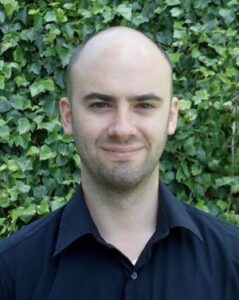
Assistant Professor of History, University of Idaho
The USC History Department provided me with an excellent foundation for my career. I have often reflected upon how it was the ideal place to pursue my research, which examines the intersection between American history and visual-culture studies. Faculty were open to – and encouraged – interdisciplinary scholarship, and the program itself offered the right mix of direction, support, and space to explore. Further, the connections between the department and research institutes at USC (such as the Visual Studies Research Institute) offered invaluable opportunities for intellectual and professional growth. This emphasis on interdisciplinary scholarship and community made the department a vibrant and formative place for me to train as a teacher and scholar.
-
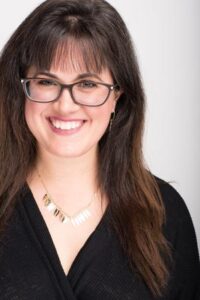
Director of Faculty Affairs and Human Resources for the USC Glorya Kaufman School of Dance and Staff Lead for the USC Choreographic Institute
The seven years I spent in USC’s history department helped me discover the interests that have motivated my professional career. After struggling for some time to identify a dissertation topic, my mentor, Lois Banner, encouraged me to write about the first love of my life – ballet. Writing about dance was the single smartest decision I made in graduate school. I never lost interest in my subject, could have stayed buried in the archives forever, and to this day remain engaged in the subject matter. The most important skill I learned in earning the Ph.D. was to think critically and to write clearly and quickly. Around the time I began revising the dissertation, Steve Ross also gently pointed out that I needed to write a bit more gracefully. It was a comment that was both humbling and also tremendously useful. After all, you can’t write about ballet and write awkwardly! I have tried to hold this advice near throughout my career.
In my current position I work closely with artists, dancers, and scholars. As one of the first staff members hired to the newly established USC Glorya Kaufman School of Dance, I had the wonderful opportunity to participate in building a school from the ground up. In addition to helping hire most of the School’s faculty and staff, I have written most of the schools operating guidelines – from tenure and promotion guidelines to staff manuals, job descriptions, org charts, partnership agreements, MOUs, contracts, and artists’ agreements. My experience as a scholar of dance has enabled me to connect with my colleagues, understand the subtleties and challenges of their careers as educators, and produce the written materials that govern our school. One of the advantages of my position is that it has also lead me into a new career area. I serve as the School’s HR partner. It is a role I enjoy and one that allows me to work closely with staff and faculty members on a range of sensitive subjects, to problem solve in addressing challenging scenarios, and to create relationships across campus.
When I began the Ph.D. program in history at USC, I planned to teach college level US history. Overtime, I discovered that what I enjoyed most was not the process of writing history, but rather the academic environment and the collaborations and conversations produced here. I am happy to continue to be involved in the university and to do so in a role in which my abilities, skill, and talents are useful. I enjoy building partnerships, facilitating collaborations between scholars and artists, and creating systems to make these relationships succeed. As new students enter Ph.D. programs in history, I encourage them to keep an open mind as to what paths their lives will take. A Ph.D. can lead you in many rewarding directions; teaching and research are not your only options. You will be prepared for many other roles. Enjoy your graduate experience and be confident that you will graduate with the skills to succeed in a fulfilling career.
To this day, I am grateful to the history department – particularly Lois Banner, Steve Ross, and Alice Echols – for their support of my research and also my choice to pursue motherhood while completing the Ph.D. Of all that I have accomplished in my life, I am most proud to have done it while growing my family. One of my favorite photographs is me holding my daughter at my hooding ceremony!
-
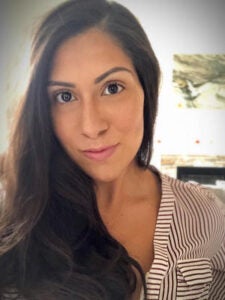
Assistant Professor of History at La Sierra University
My graduate experience at USC helped shape the scholar I have become, and shaped my idea of the professor that I would ultimately like to become. I had so many opportunities to conduct research. My professors, especially Bill Deverell and George Sanchez, nurtured my intellectual curiosity, and I was able to do this in a collegial environment. I am very happy with my decision to attend USC and I believe my training here set me up for a successful career at my current institution.
-
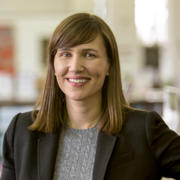
Library Publishing and Scholarly Communications Specialist
Temple University Libraries/Temple University Press
I came to USC to study nineteenth-century American cultural history with Karen Halttunen. I quickly realized how lucky I was to have Karen as an adviser. Karen made me a better writer and historian. Most importantly, she encouraged me to pursue the career that was right for me. Others in the history department also shaped my professional and intellectual development in important ways. Phil Ethington helped me become a digital humanist. Working with and for him on a variety of digital projects gave me the experience I needed to get my first job in an academic library. Deborah Harkness nurtured my passion for the history of the book, and showed me what it means to be a publicly engaged scholar.
In my current position, I help faculty and students understand their technical and legal options for sharing and publishing their research. I also advocate for openly available scholarship. I spend my days leading workshops, planning events, holding one-on-one consultations, writing reports, and keeping up with the latest developments in scholarly communication. I am the Principal Investigator for an $81,974 National Endowment for the Humanities (NEH) grant to digitize and make freely available some of our outstanding Temple University Press books in labor studies. While my training as a graduate student did not directly prepare me for the job I have now, it was at USC that I first started thinking about how digital technologies could change scholarly publishing for the better. I am grateful to the department for supporting me as I charted my own course.
-
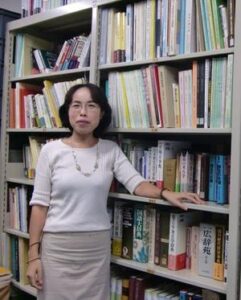
Assistant Professor, Faculty of Arts, Rissho University
After spending several years at Hitotsubashi University as an international coordinator I moved to Rissho University, one of the oldest private institutions in Japan, as an assistant professor in the Faculty of Arts. I teach courses on premodern and modern Japanese history and literature. I am also responsible for coordinating international student education and our exchange programs, as well as being involved in curriculum design. In addition, I teach survey courses in Japan studies to foreign students at Daito Bunka University.
-
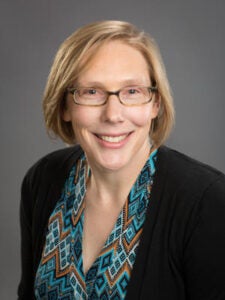
Assistant Professor of History, University of Nevada, Reno
The training I received at USC has been and continues to be critical to my professional success and career trajectory. At USC I was able to work closely with leading scholars in my subfield, particularly my advisor, William (Bill) Deverell. I chose USC because Bill was there and because of the Huntington-USC Institute on California and the West (ICW) that he directs. The Huntington-USC partnership allowed me access to the rich archival and professional resources at The Huntington Library. As a direct result of that partnership I was able to research and publish award-winning scholarship very early in my graduate career.
While Bill was my primary advisor, one of the strengths of USC’s program is the accessibility of the many distinguished faculty. I was also privileged to work directly with Peter Mancall and Richard Fox. In addition to being a valuable mentor in and out of the classroom Peter’s work with the Early Modern Studies Institute helped to expose me to leading scholars with similar thematic interests in the environment, cross-cultural encounters, and Indigenous history. Richard’s leadership in the classroom and astute critical commentary on my research papers and dissertation helped me to produce the best possible work.
I think the truest testament to the strength of the training I received at USC is that I continually recall and refer to advice I received while in the program. It’s never led me astray!
-
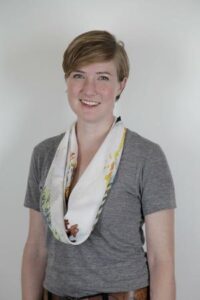
Assistant Professor of History, California State University Northridge
The Archivo General de la Nación in Mexico City is an unusual place to find a historian of California and the American West. Mexico’s national archive is located in a nineteenth-century prison where librarians pull archival boxes out of former cells and a family of cats resides in its central rotunda. It was the intellectual support of the History Department at USC, particularly Bill Deverell and the Huntington-USC Institute on California and the West (ICW), that led me to a summer spent digging deep into Mexican archives. Bill and the faculty at USC allowed me the creative space to explore transnational history and the international dimensions of California’s past.
Unique collaborations such as the partnership between USC and the Huntington initially drew me to the doctoral program at USC in 2006 and provided crucial support in my development as a scholar. Courses taught by faculty affiliated with the ICW piqued my interest in the growing field of Los Angeles history. Scholars visiting USC and the Huntington Library through ICW programing expanded my knowledge not only of the history of Los Angeles but also its place in a broader Western context. This type of expansive thinking led me to a book project, now under contract with the University of North Carolina Press that places the rise of Los Angeles and California in an international context, linking the development of the city and the state to the wider world of Latin America and the Pacific Rim.
The Institute’s publicly engaged programming also helped me hone the skills of a public historian. ICW is unique in its focus not only on academic pursuits but in fostering an ongoing dialogue between a keen public audience and professional historians. Projects such as “Form and Landscape: Southern California Edison and the Los Angeles Basin, 1940-1990,” a digital exhibit produced in partnership with the Huntington Library and the Getty Foundation in 2013, brought cutting edge academic research into conversation with a wide public audience. Involvement with these projects helped me obtain a position as an assistant professor at California State University, Northridge, in 2012 where I teach courses on public history, Los Angeles history, and California history.
-
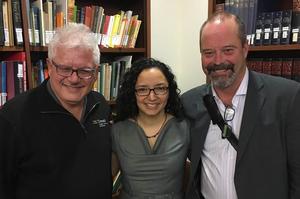
Assistant Professor of History, Princeton University
Any discussion about my time as a graduate student in the USC history department has to begin and end with a statement praising the support and dedication of my two advisors, George Sánchez and Bill Deverell. They so perfectly complemented each other and gave me all of the support and professional skills needed to complete my graduate work and to obtain a job after graduation. I still turn to them (probably more than I should), because I know they have both my professional and personal interests at heart and know me so well. I could not have asked for a better graduate mentoring experience than I had with the two of them.
My favorite USC memories include going into the archives at the Huntington Library to find evidence to write a research paper (it became my first article), working to bring archives and history to fourth graders in the Pasadena public schools, talking with scholars from around the country in Bill’s class on Los Angeles, and having a close knit cohort of graduate students with whom I experienced the trials and successes of graduate education. I look back fondly on my time at USC. I am grateful to María Elena Martínez and Richard Fox for pushing me during my course work to be a stronger writer. I am also appreciative of the individual attention I received in each course I took. Bill Deverell opened the door for the publication of my first two articles and provided me with funding opportunities for research. I am incredibly grateful that George Sánchez believed in me enough to encourage me to tackle a big dissertation topic that has now become my first book: An American Language: The History of Spanish in the United States.
-
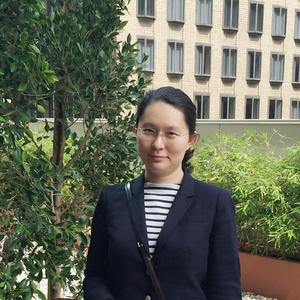
Assistant Professor of History, University of Massachusetts, Boston
Invaluable mentorship, generous financial aid, and unbeatable location are the three phrases that I summarize my seven-year experience in the graduate program of the history department.
I am deeply indebted to Professor Sheehan and Professor Goldstein not only for their world-class guidance on my dissertation, but also for their substantial help in transforming me from a student to a professional scholar and teacher. When I was on the job market for the first time, they arranged mock job talks ranging from phone interviews, lectures, to academic talks at all stages of my search. I am also grateful for their willingness to extend their mentorship many years after I graduated from USC.
The generous financial package allowed me to devote myself wholeheartedly to academic work. The summer teaching assistantships from the East Asian Studies Center guaranteed my field trips to China for three consecutive years. The Dissertation Fellowship freed me from teaching in my final year so that I could concentrate on dissertation writing and job seeking. Financial security provided by USC is the prerequisite for academic excellence.
The “natural endowment” of Los Angeles–balmy weather, beautiful beaches, non-stop flights taking me anywhere (crucial for Asianists and international students, trust me!), and cosmopolitan food culture–makes the daunting task of balancing work and life as a stressful graduate student so much easier, at least in my case.
-
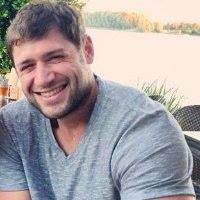
History Podcaster and Writer
The training I received at USC’s Department of History is the foundation for my professional life as a history podcaster and writer. Every day, I rely on the skills in research and organization that I was taught over the course of my Ph.D. Doing history for popular audiences isn’t the same as writing for academics, but doing it well is no less rigorous. It requires precisely the same ability to weigh evidence, think critically, and pick and choose arguments, things I learned from my advisor, Lisa Bitel. Teaching with fantastic lecturers like Deborah Harkness and Judith Bennett taught me how to structure information and present it to non-expert audiences.
The environment and people who surrounded me during that time shape the way I think about history, the topics I emphasize, and the way I present that information to mass public audiences in the hundreds of thousands. For all of that and much more, I will always be grateful to the Department of History at USC.